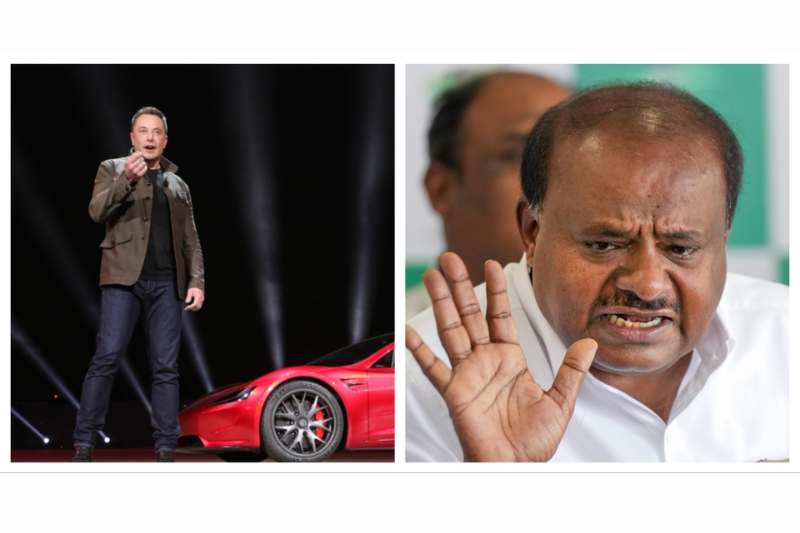
Tesla, the world’s leading electric vehicle manufacturer, has once again made headlines. But this time, it’s not about new car models or technology breakthroughs. According to the latest update from an Indian government minister, Tesla is not interested in manufacturing cars in India. This update has sparked discussions around Tesla’s India entry strategy and electric vehicle production in India.
H.D. Kumaraswamy, India’s Heavy Industries Minister, recently confirmed Tesla’s current stance on manufacturing cars in India. The minister said Tesla is focusing on importing vehicles and setting up showrooms instead of establishing local production units. This statement clarifies Tesla’s position amid India’s push to attract electric vehicle manufacturers.
India has recently revamped its electric vehicle policy to boost domestic manufacturing and reduce reliance on imports. The new EV policy offers reduced import duties for companies that commit to manufacturing vehicles locally. Specifically, the import duty on electric cars is reduced from 70% to 15% for companies that invest significantly in Indian manufacturing and meet local content requirements within three years. Despite these attractive incentives, Tesla has not shown interest in taking advantage of the new EV manufacturing policy.
Tesla’s reluctance to start manufacturing in India stems from several challenges. First, while the import duty has been reduced for local manufacturers, it remains high for companies that only import vehicles, making Tesla cars expensive in India. Second, India’s regulatory and bureaucratic landscape presents hurdles for Tesla’s rapid setup of manufacturing plants. Third, India’s electric vehicle infrastructure, including charging networks and supply chains, is still evolving, which might influence Tesla’s decision to delay local manufacturing. Instead, Tesla prefers to strengthen its brand presence through showrooms in key Indian cities such as Delhi and Mumbai.
Since Tesla plans to import cars instead of manufacturing locally, Indian customers will face higher prices due to import duties and taxes. This may limit Tesla’s market penetration in India compared to competitors who manufacture locally. However, Tesla’s brand appeal and advanced EV technology still attract a niche market of premium electric vehicle buyers in India. The import-only strategy also means fewer Tesla models may be available initially in India.
Other global automakers like Mercedes-Benz and Volkswagen are considering establishing electric vehicle manufacturing plants in India to benefit from the government’s new EV policy. Indian automakers such as Tata Motors and Mahindra & Mahindra have invested heavily in electric vehicle production and advocate for protective measures like higher import duties on imported EVs. The contrasting approaches among automakers reflect the dynamic and competitive nature of the Indian electric vehicle industry.
Tesla’s immediate focus in India remains on expanding its showroom network and providing customer support for imported vehicles. The company is testing the Indian market without heavy investment in manufacturing infrastructure. However, experts believe Tesla could reconsider manufacturing in India if the electric vehicle market grows significantly and if infrastructure and regulatory conditions improve. Tesla’s future decisions will likely depend on how quickly India can build charging infrastructure and support local EV manufacturing.
Tesla’s decision not to manufacture cars in India highlights the challenges foreign EV manufacturers face despite attractive government policies. While India aims to boost local electric vehicle production through favorable policies and incentives, Tesla is taking a cautious approach focused on imports and showroom presence. Indian consumers interested in Tesla’s electric vehicles should expect premium prices due to import duties for now. Meanwhile, other automakers are moving faster to capitalize on India’s electric vehicle revolution. As the market evolves, Tesla’s manufacturing plans in India may change, shaping the future of electric mobility in the country.